
Madagascar's second-round election on Wednesday pits two former presidents against each other in a long-awaited and bitter battle for power in which their strong personalities dominate over policies.
Ravalomanana: milkman-turned-millionaire
Marc Ravalomanana, 69, was ousted in 2009 and is now looking for revenge at the ballot box.
Born into a peasant family, he once worked as a milkman before going on to form an agriculture and food empire after creating Tiko yoghurt.
He first emerged on the political stage when he became mayor of Antananarivo in 1999.
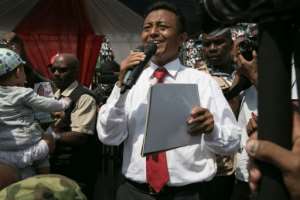 Self-made businessman Marc Ravalomanana served as mayor of Antananarivo before rising to the presidency. By RIJASOLO (AFP)
Self-made businessman Marc Ravalomanana served as mayor of Antananarivo before rising to the presidency. By RIJASOLO (AFP) Despite having no party machine behind him, the self-made business tycoon ran for president two years later, defeating the incumbent Didier Ratsiraka and taking over in 2002 following a wave of violent street protests.
He was reelected in 2006 in the first round of voting and secured the cancellation of Madagascar's debt.
While supporters lauded his indefatigable energy, critics accused him of acting like a dictator, with criticism building from the end of 2008.
On February 7, 2009, his presidential guard opened fire on supporters of Andry Rajoelina, Antananarivo's mayor at the time, as they marched on the presidential palace.
Ravalomanana was forced to hand power to the army who subsequently passed the presidential reins to his rival Rajoelina.
He then went into exile, not returning to the Indian Ocean island nation until the election of Hery Rajaonarimampianina in 2014.
Back at the head of his party Tiako I Madagasikara (TIM) -- or "I Love Madagascar" -- Ravalomanana has plotted a careful strategy to regain power and has studiously courted the international donor nations on which the island depends.
Faced with a younger opponent, he has embraced his nickname "Daddy" and styled himself as the experienced "father of the Nation" who knows how to "build a prosperous Madagascar".
"Daddy is back," he told thousands of enthusiastic supporters in the capital.
Asked during the campaign how he would react to a Rajoelina win, Ravalomanana told AFP: "I would accept the results, within limits".
Rajoelina: return of 'the disc jockey'?
Andry Rajoelina, 44, had a slight lead over Ravalomanana in the first round and has attracted impressive numbers to his rallies, which have featured performance artists and fireworks.
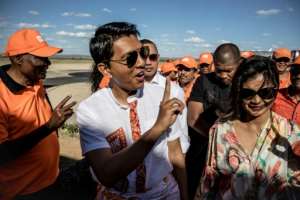 Andry Rajoelina assumed the presidency after his predecessor Ravalomanana was forced to step down in 2009. By MARCO LONGARI (AFP)
Andry Rajoelina assumed the presidency after his predecessor Ravalomanana was forced to step down in 2009. By MARCO LONGARI (AFP) His policies have drawn ridicule from his rivals, such as a proposal to fit zebu cows with trackers to battle rustling, and a scheme to convert Tamatave port into a "Malagasy Miami".
Rajoelina burst onto the political scene in 2007.
He was previously known for promoting parties in the capital, earning him the nickname "the disc jockey", but he caused an upset when he won the city's mayoral race.
Helped by his own Viva broadcasting channel and strong communications skills, he quickly established himself as the leading voice of opposition to then-president Ravalomanana.
His supporters openly defied the regime with the tacit support of the military, who helped oust Ravalomanana in 2009.
Rajoelina defended his elevation to the presidential palace on the back of a coup d'etat, telling AFP: "It was a popular uprising."
At the time, Rajoelina, who was in his mid-30s, struggled to lead the country out of crisis as its unelected leader.
His rivals also accused him of rampant corruption, greed, and turning a blind eye to the pillage of the country's natural resources, including its precious rosewood forests.
His failings won him the nickname "crayfish" -- a crustacean that walks backwards.
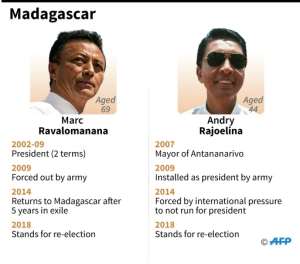 Profiles of Madagascan presidential election candidates and long-standing rivals, Marc Ravalomanana and Andry Rajoelina. By Paul DEFOSSEUX (AFP/File)
Profiles of Madagascan presidential election candidates and long-standing rivals, Marc Ravalomanana and Andry Rajoelina. By Paul DEFOSSEUX (AFP/File) Under international pressure, Rajoelina did not contest the 2013 election and backed his victorious former finance minister Hery Rajaonarimampianina.
The two quickly fell out, and two years ago Rajoelina vowed to win back office at the ballot box.
Rajoelina has been energetic on the campaign trail, bringing a sense of excitement and change to his spectacular rallies.
But his policies have been criticised as unrealistic and foes have questioned how he funds his lavish campaigning.
But Rajoelina has dismissed his critics and vowed to transform his country.
"The situation is catastrophic in Madagascar, I would like to give people hope and pride," he said.
"I will be a president of the poor people who protects the poor."
Read Full Story
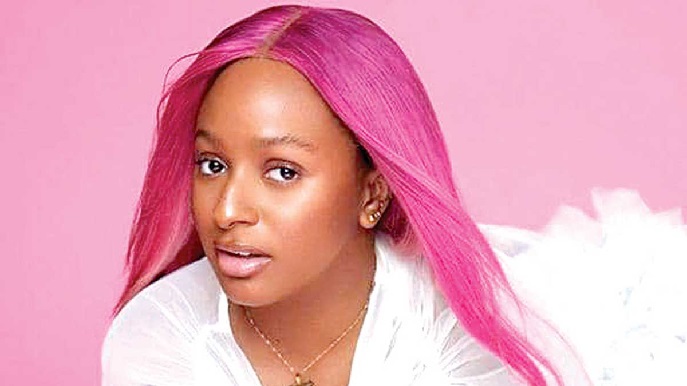









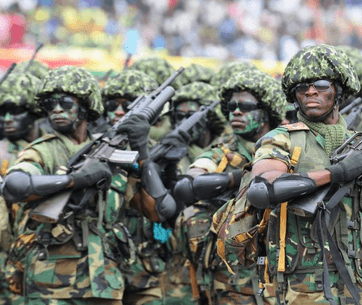
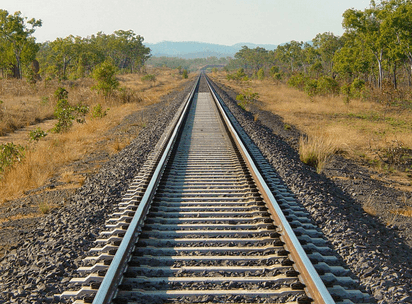

Facebook
Twitter
Pinterest
Instagram
Google+
YouTube
LinkedIn
RSS